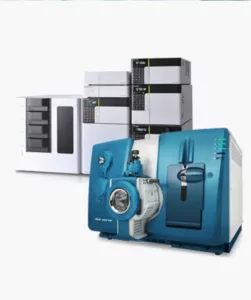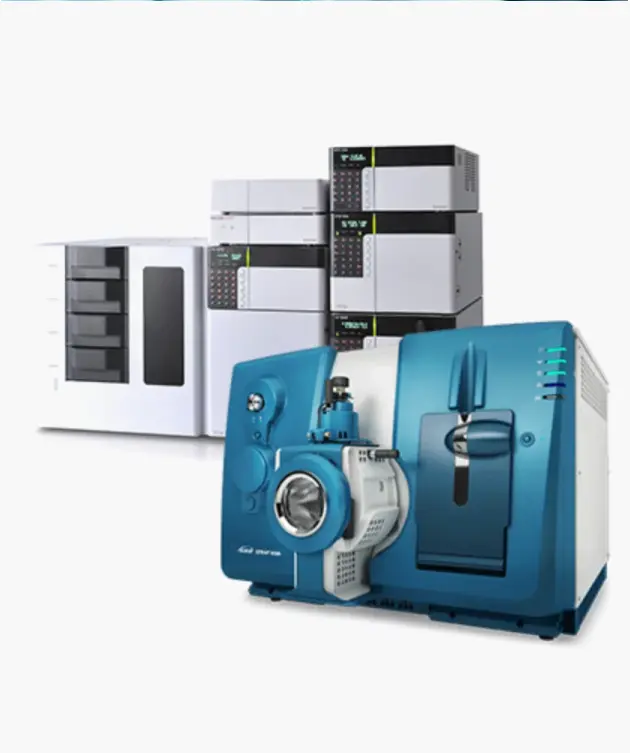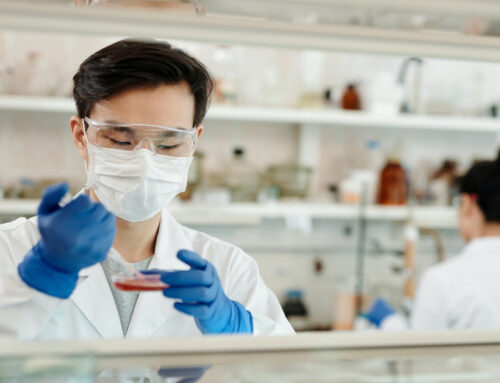Liquid Chromatography-Mass Spectrometry (LCMS) is a powerful analytical technique used in chemistry and biochemistry for separating, identifying, and quantifying compounds. The process and its high cost can be understood in several steps:
- Liquid Chromatography (LC) Separation: The sample is dissolved in a solvent and injected into the LC system. Here, the mixture travels through a column packed with a stationary phase. Different components in the sample interact differently with this phase and thus travel at different speeds, leading to their separation.
- Mass Spectrometry (MS) Detection: After separation, the compounds enter the mass spectrometer. In the MS, the compounds are ionized (usually turned into positively charged ions). The ionized molecules are then passed through an electric and/or magnetic field which separates them based on their mass-to-charge ratio (m/z).
- Detection and Analysis: The separated ions are detected, usually by a detector that measures the number of ions at each m/z ratio. This results in a mass spectrum for each compound, which is like a fingerprint that can be used to identify and quantify the compounds.
The reasons for the high cost of LCMS instruments include:
- Complexity and Precision: LCMS combines two sophisticated technologies (LC and MS), each requiring high precision in manufacturing and operation. The accuracy needed for separating and analyzing molecules down to minute concentrations contributes to the complexity and cost.
- High-Quality Materials: The components must be made from high-quality materials to withstand the high pressures in the LC system and the vacuum conditions in the MS.
- Advanced Technology: The mass spectrometer, in particular, is a piece of advanced technology. The ionization sources, mass analyzers (like quadrupoles, time-of-flight, or ion traps), and detectors are all complex and require precise engineering and manufacturing.
- Software and Data Analysis: The data generated by LCMS is complex and requires sophisticated software for interpretation and analysis. Development of this software is resource-intensive.
- Maintenance and Calibration: Regular maintenance and calibration are necessary to keep the instrument running accurately, which adds to the ongoing costs.

LCMS Instrument with an ABSciex mass spectrometer and Shimadzu LC stack used in a clinical laboratory setting.
Routine care and regular maintenance are crucial for ensuring a long lifespan of Liquid Chromatography-Mass Spectrometry (LCMS) instruments due to several reasons:
- Preventing Contamination and Wear: LCMS systems are highly sensitive to impurities. Regular cleaning and maintenance help prevent the buildup of contaminants that can degrade performance and cause wear on critical components. For instance, the LC column can become clogged, and the ion source in the MS can accumulate residues that affect ionization efficiency.
- Maintaining Accuracy and Sensitivity: The accuracy and sensitivity of LCMS are its core strengths. Calibration and routine maintenance ensure that these parameters remain within acceptable limits, ensuring reliable and reproducible results. Inconsistent or inaccurate data can lead to erroneous conclusions, especially critical in fields like pharmaceuticals and clinical diagnostics.
- Preventing Costly Repairs and Downtime: Regular maintenance can identify and rectify small issues before they become major problems. This proactive approach prevents costly repairs and reduces downtime, which can be significant in high-throughput environments where instrument availability is critical.
- Ensuring Compliance with Standards: In many industries, LCMS is used for analyses that must comply with regulatory standards (like FDA regulations in pharmaceuticals). Regular maintenance ensures that the instrument operates within the required guidelines and produces valid data.
- Extending Instrument Lifespan: Like any sophisticated equipment, regular care and maintenance extend the overall lifespan of LCMS systems. By keeping the system in optimal condition, labs can avoid premature replacement costs.
- Software Updates and Optimizations: Regular updates to the software that runs the LCMS ensure that the system benefits from the latest advancements in data analysis and instrument control, which can enhance performance and longevity.
- Training and User Competence: Regular maintenance often involves training users in proper handling and operation. This helps in minimizing user-induced errors and mishandling, further contributing to the instrument’s longevity.
Routine care and regular maintenance are investments in the reliability, accuracy, and longevity of LCMS instruments. These practices safeguard against operational failures, maintain compliance with standards, and ultimately ensure that the high cost of these instruments translates into long-term, high-quality performance. Time-to-time LCMS instruments may need a deeper cleaning or service call to get them back up to high performance standards, that where service groups like Pulsar Instrument Support can assist. Pulsar’s repair and service technicians specialize in performing preventative maintenance service calls and improving the overall performance of these complex mass spectrometers backed by data driven results
Overall, LCMS is valued for its ability to provide detailed and accurate analysis of complex mixtures, making it indispensable in fields like pharmaceuticals, environmental testing, and biochemical research. Despite the high initial and operating costs, its unmatched analytical capabilities justify the investment for many laboratories.


